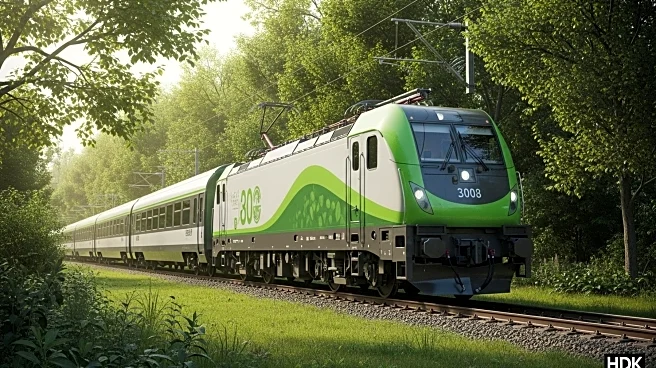What's Happening?
Wabtec Corporation and Vale have partnered to develop studies on a dual-fuel engine capable of using both diesel and a mixture of diesel and ethanol. These studies aim to validate the concept and evaluate performance, emissions reduction, and ethanol/diesel substitution rate. The initiative is part of Vale's railway operations decarbonization program, with tests expected to take place by 2027 for potential use in the Vitória-Minas Railway fleet in Brazil. Vale has previously committed to purchasing locomotives equipped to operate with up to 25% biodiesel mixed with diesel, and aims to further increase this percentage.
Why It's Important?
The collaboration between Wabtec and Vale represents a significant step towards reducing carbon emissions in the rail industry. By exploring the use of ethanol, a renewable fuel, Vale is advancing its commitment to decarbonizing its rail network, which accounted for 14% of the company's carbon emissions in 2024. This initiative aligns with Vale's broader goals of reducing absolute emissions by 33% by 2030 and achieving net-zero carbon emissions by 2050. The partnership highlights the potential for innovative fuel solutions to contribute to global efforts to limit climate change.
What's Next?
The studies and tests on the dual-fuel engine are expected to continue until 2027, with the aim of implementing ethanol use in Vale's railway operations. Vale and Wabtec will conduct further tests to increase the percentage of biodiesel used in locomotives. These efforts are part of Vale's strategy to accelerate the decarbonization of its rail network and contribute to its long-term emissions reduction goals. The success of these initiatives could pave the way for broader adoption of alternative fuels in the rail industry.










